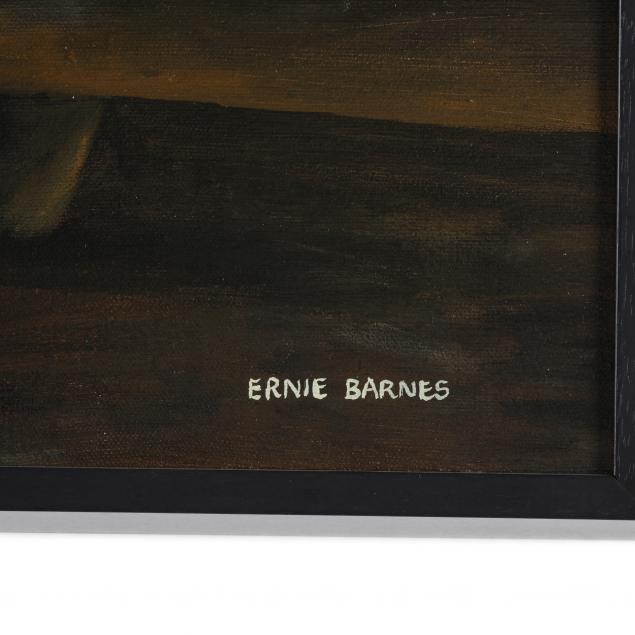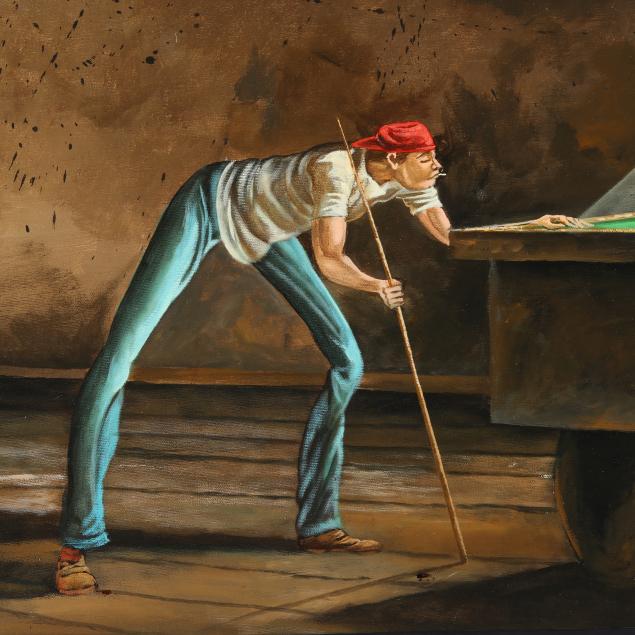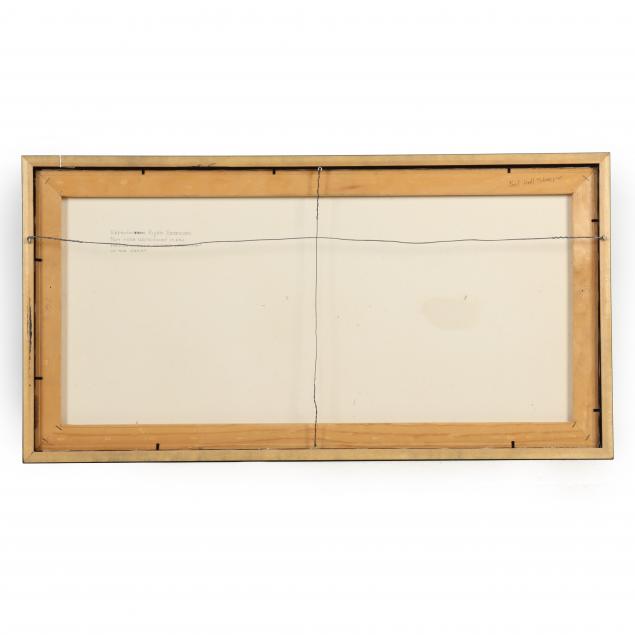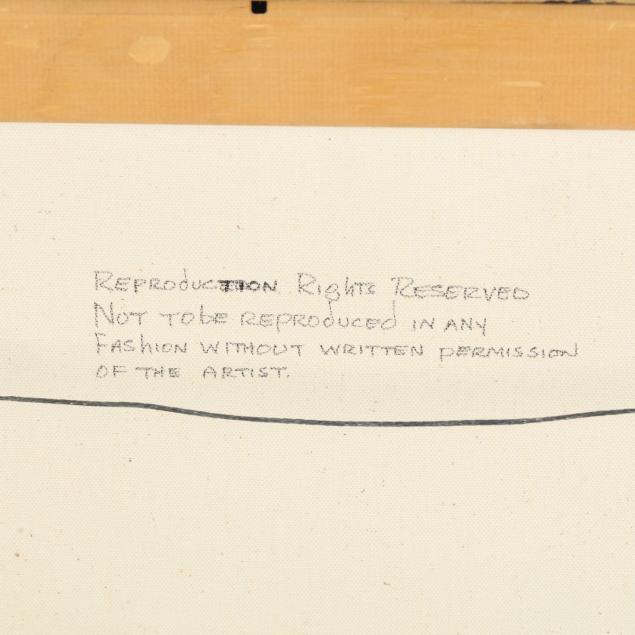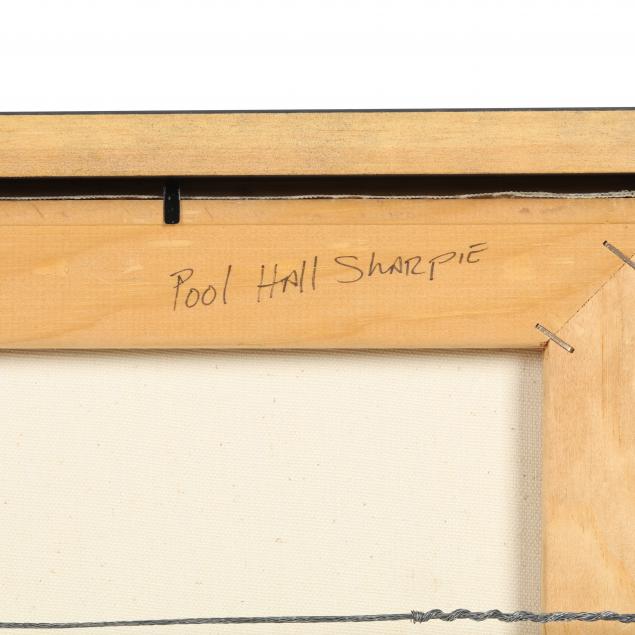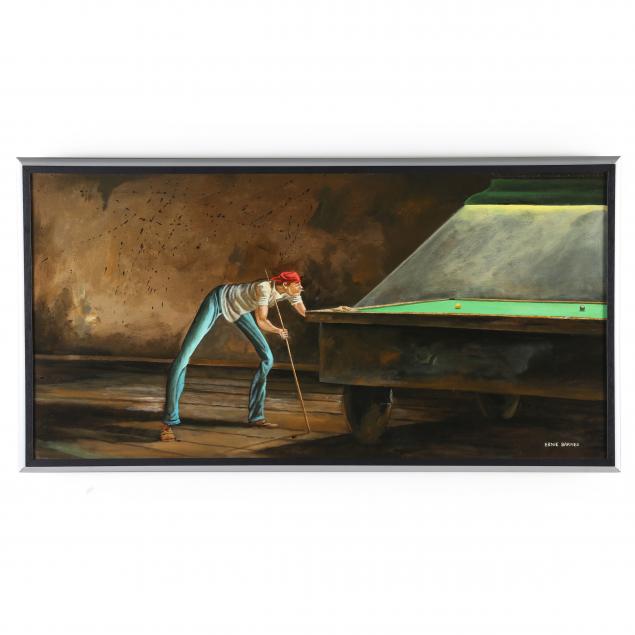
Lot 132
Ernie Barnes (American, 1938-2009), Pool Hall Sharpie
Explore more items like this one.
Visit our Fine Art Department Fine Art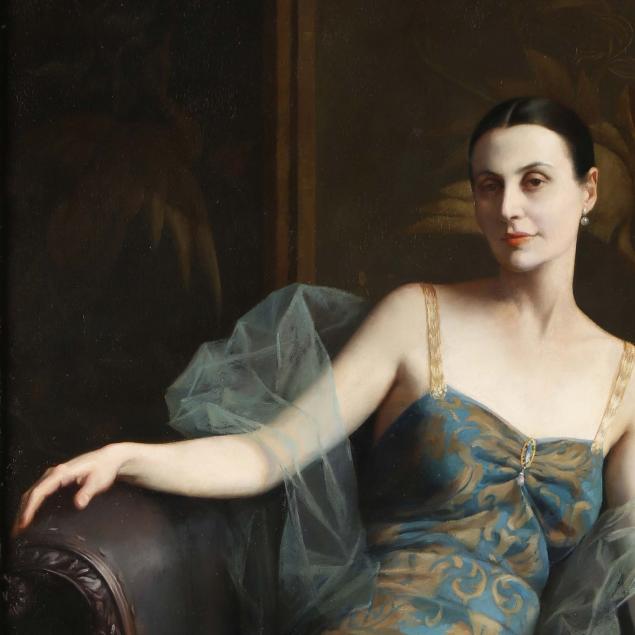
Lot Details & Additional Photographs
Stretcher size 18 x 36 in.; Frame dimensions 19 1/2 x 37 1/2 in.
From the Collection of Dr. and Mrs. Percy E. Jones, Greensboro, North Carolina
Ernie Barnes was born in Durham, North Carolina and raised in “The Bottom,” an African American neighborhood near the city’s Hayti District. His father was a shipping clerk for Liggett Meyers and his mother was the house manager for a prominent Durham attorney and Board of Education member, Frank Fuller, Jr.
Barnes’ earliest introduction to formal artistic instruction was in the library, and through conversation with, his mother’s employer. In school, he would spend his free time drawing, as an escape from boisterous and some bullying classmates. A chance encounter with Tommy Tucker, the weightlifting coach and masonry teacher at Durham’s Hillside High School, placed Barnes on a new trajectory. By the time he graduated from high school, he was captain of the football team and state champion in the shot put.
In 1956, Barnes’ enrolled at what is now North Carolina Central University on a full athletic scholarship. He majored in art and was urged by one of his instructors, Edward Wilson, chair of the art department, to feel and remember movement during his games and practice and to translate them into his paintings. Although Barnes left the school in 1959 to be drafted into professional football in the American Football League, Wilson’s wisdom was greater than any paper diploma.
Barnes played professional football from 1959 until 1965, for several different teams. He was known to keep a sketchbook during games and earned the nickname “Big Rembrandt.” After an injury ended his football career, he was finally able to devote himself completely to painting.
Barnes’ paintings are often called “Neo-Mannerist.” His figures are larger than life - actively taking up space on the canvas; his athletes are all tenons and muscles bulging and poised, ready to propel a ball effortlessly through a hoop, or, as is the case with “The Hurdler,” literally stretched to their limits and pushing beyond.
These paintings have a theatrical aspect, which is apropos considering Barnes’ achieved recognition on a national level through the inclusion of his paintings on the 1970s sitcom, “Good Times.” They capture moments etched into Barnes’ memories - from sneaking into a dance at the Durham Armory as a young boy as seen in “The Sugar Shack,” to watching young men play pick-up basketball in his adopted city of Los Angeles, to three boys watching a thistle grow from a crack in the pavement.
Good estate condition; no evidence of restoration visible under UV light.
$60,000 - 90,000
